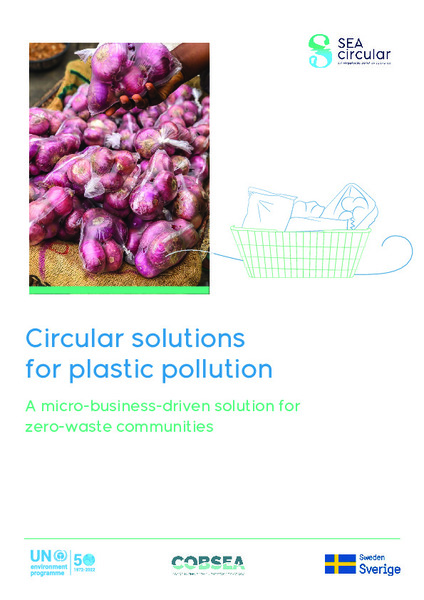Circular Solutions for Plastic Pollution: A Micro-business-driven Solution for Zero-waste Communities

Date
2022-09Author
United Nations Environment Programme
Citation Tool
Bibliographic Managers
RT Generic T1 Circular Solutions for Plastic Pollution: A Micro-business-driven Solution for Zero-waste Communities A1 United Nations Environment Programme YR 2022-09 LK https://wedocs.unep.org/20.500.11822/41083 PB AB TY - GEN T1 - Circular Solutions for Plastic Pollution: A Micro-business-driven Solution for Zero-waste Communities AU - United Nations Environment Programme Y1 - 2022-09 UR - https://wedocs.unep.org/20.500.11822/41083 PB - AB - @misc{20.500.11822_41083 author = {United Nations Environment Programme}, title = {Circular Solutions for Plastic Pollution: A Micro-business-driven Solution for Zero-waste Communities}, year = {2022-09}, abstract = {}, url = {https://wedocs.unep.org/20.500.11822/41083} } @misc{20.500.11822_41083 author = {United Nations Environment Programme}, title = {Circular Solutions for Plastic Pollution: A Micro-business-driven Solution for Zero-waste Communities}, year = {2022-09}, abstract = {}, url = {https://wedocs.unep.org/20.500.11822/41083} } TY - GEN T1 - Circular Solutions for Plastic Pollution: A Micro-business-driven Solution for Zero-waste Communities AU - United Nations Environment Programme UR - https://wedocs.unep.org/20.500.11822/41083 PB - AB -View/Open
Item Statistics
Display item statisticsMetadata
Show full item recordDescription
A large share of the Philippines’ fast-moving consumer goods (FMCGs) are accessed through sari-sari stores.4 There are an estimated 800,000 of these micro-businesses conveniently located in communities across the country. The sale of goods in tingi, or small portions, and the flexibility of store owners to extend credit on goods with short settlement periods make these microbusinesses convenient, accessible and durable. This convenience encourages people to buy goods more often at the expense of the environment, as does their socioeconomic status and purchasing power. Given the nature of sari-sari stores, their social and economic role in grass-roots communities, and the staggering amount of plastic consumption, they offer a significant opportunity to adopt circular practices.
That is why the Philippine Reef and Rainforest Conservation Foundation, Inc. (PRRCFI) came up with the concept of “Wala Usik”, meaning “nothing is wasted”.
Collections
Document Viewer
To read more, scroll down below.

